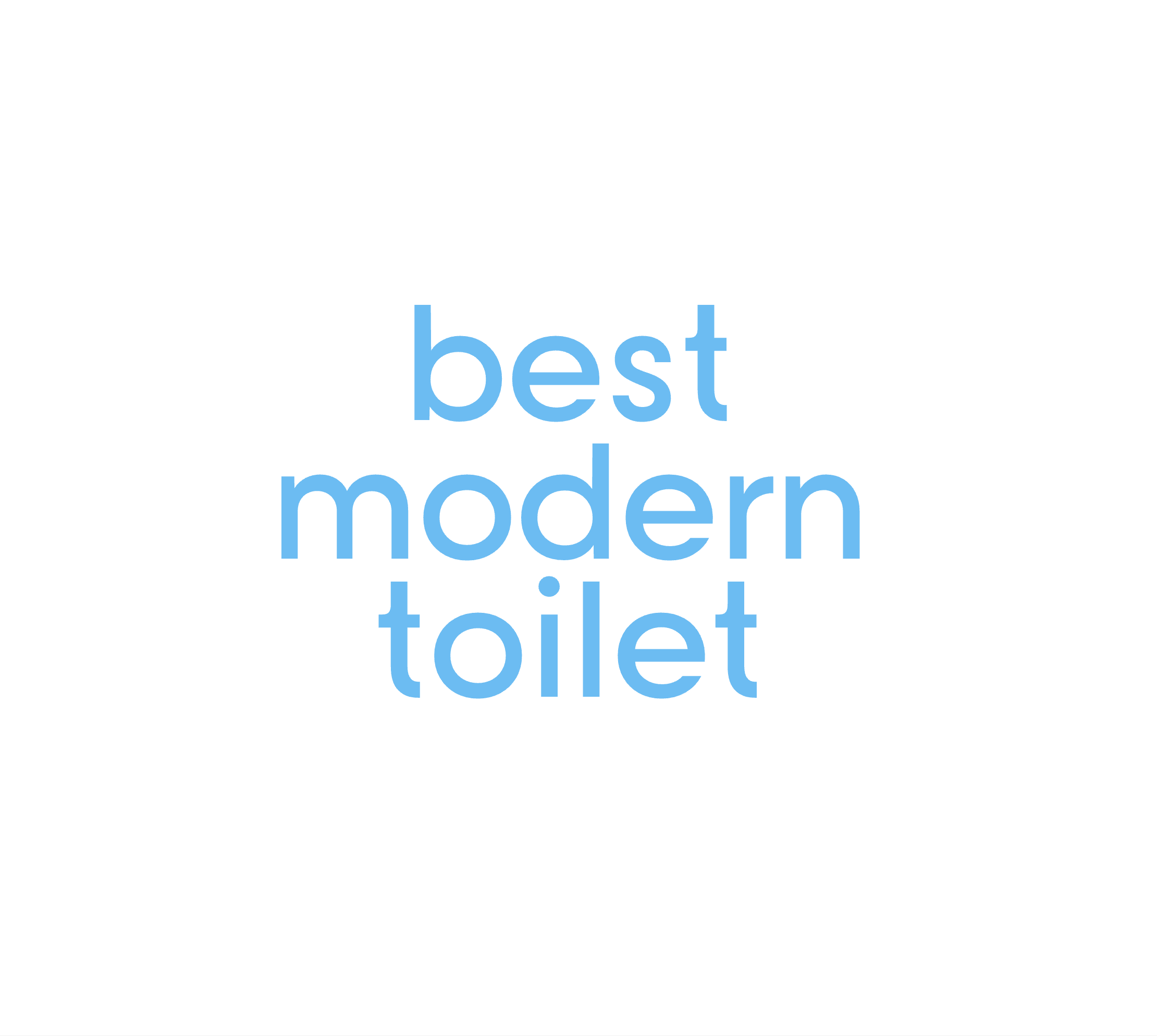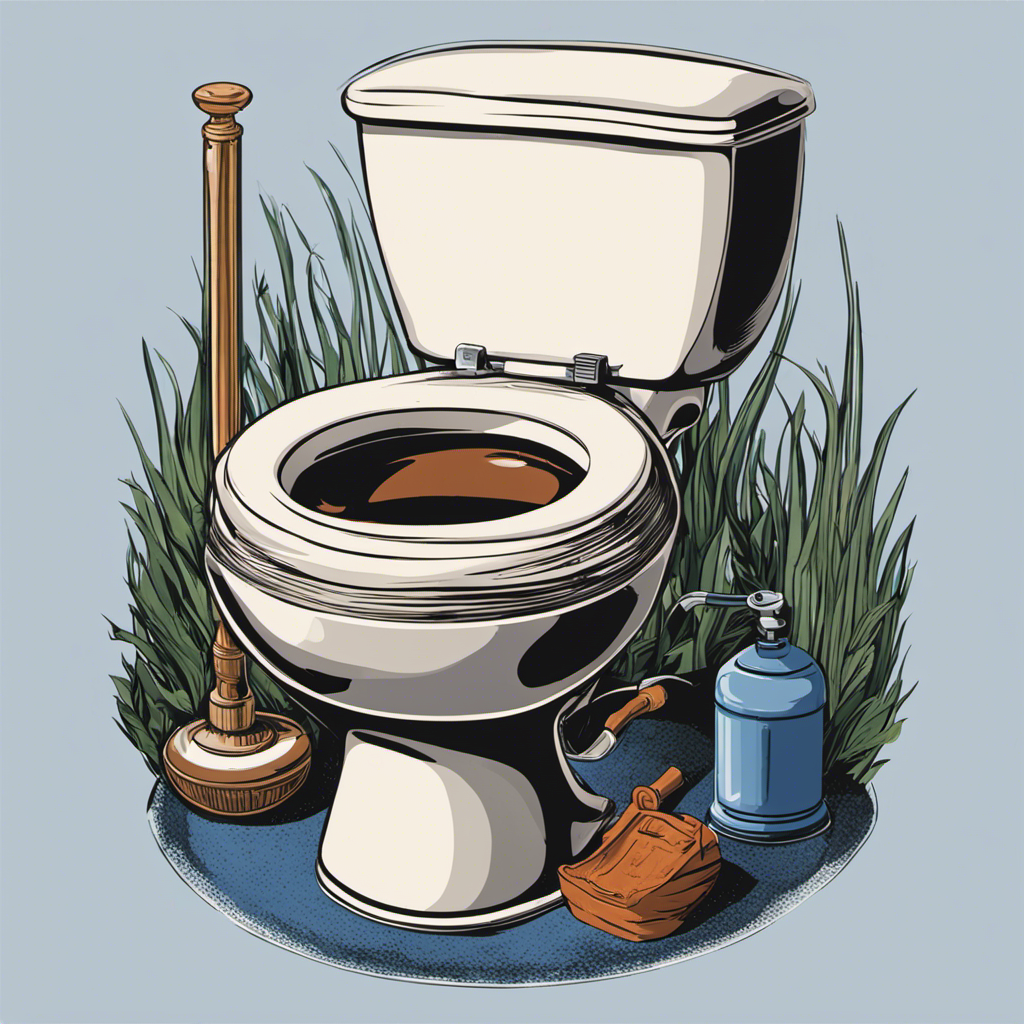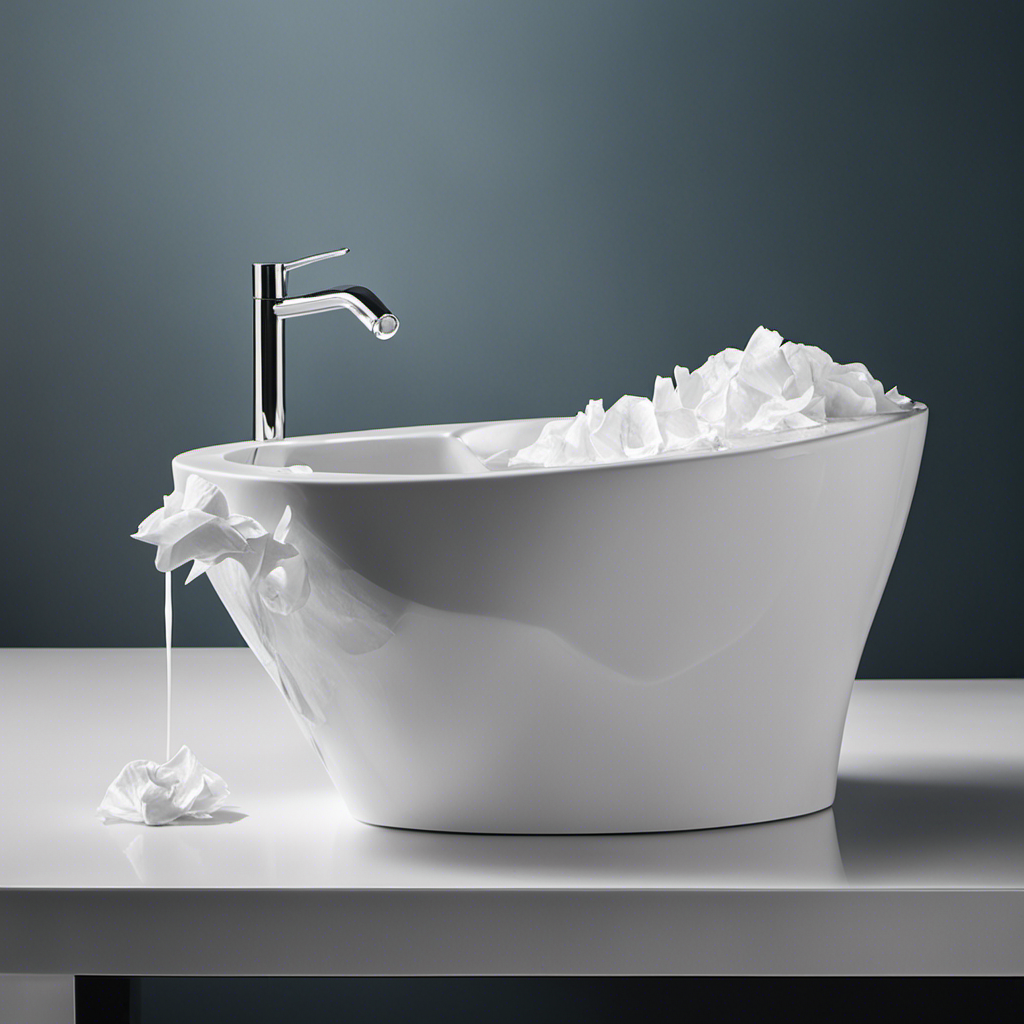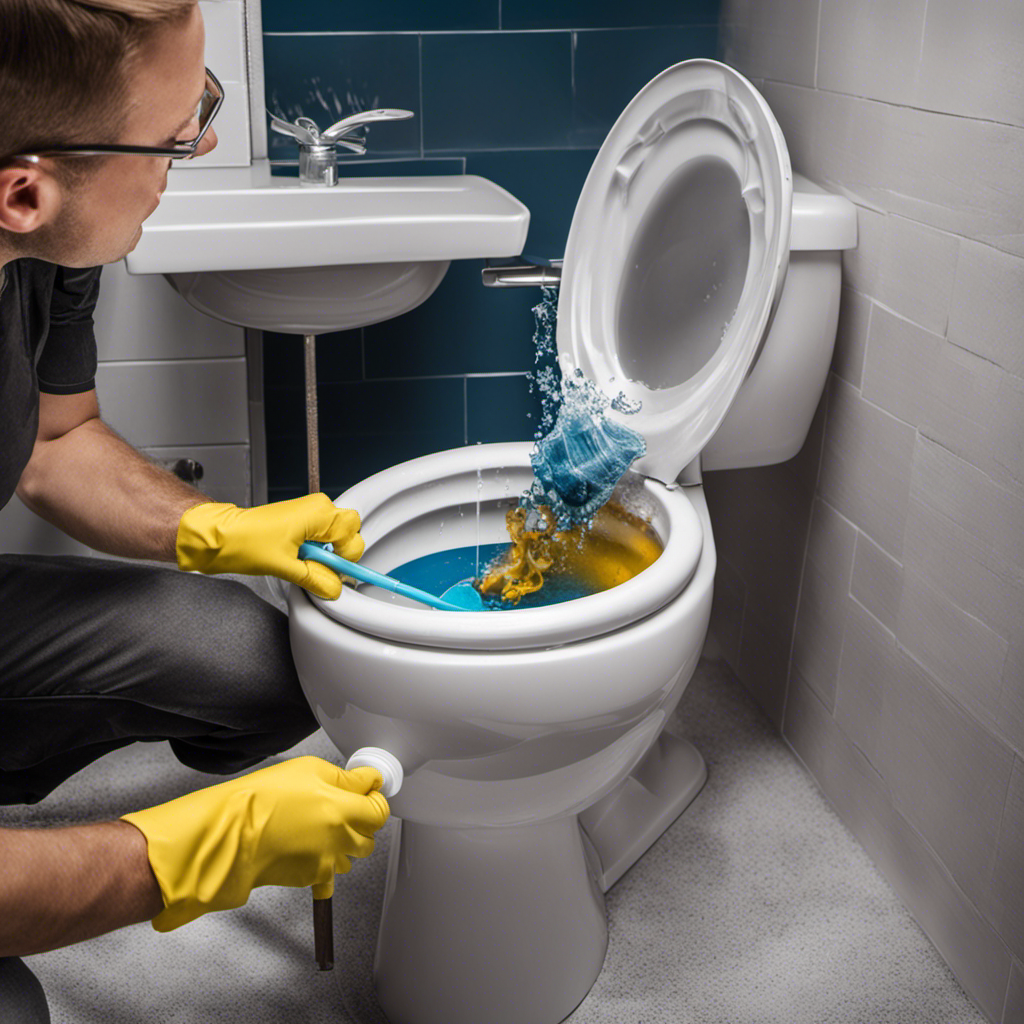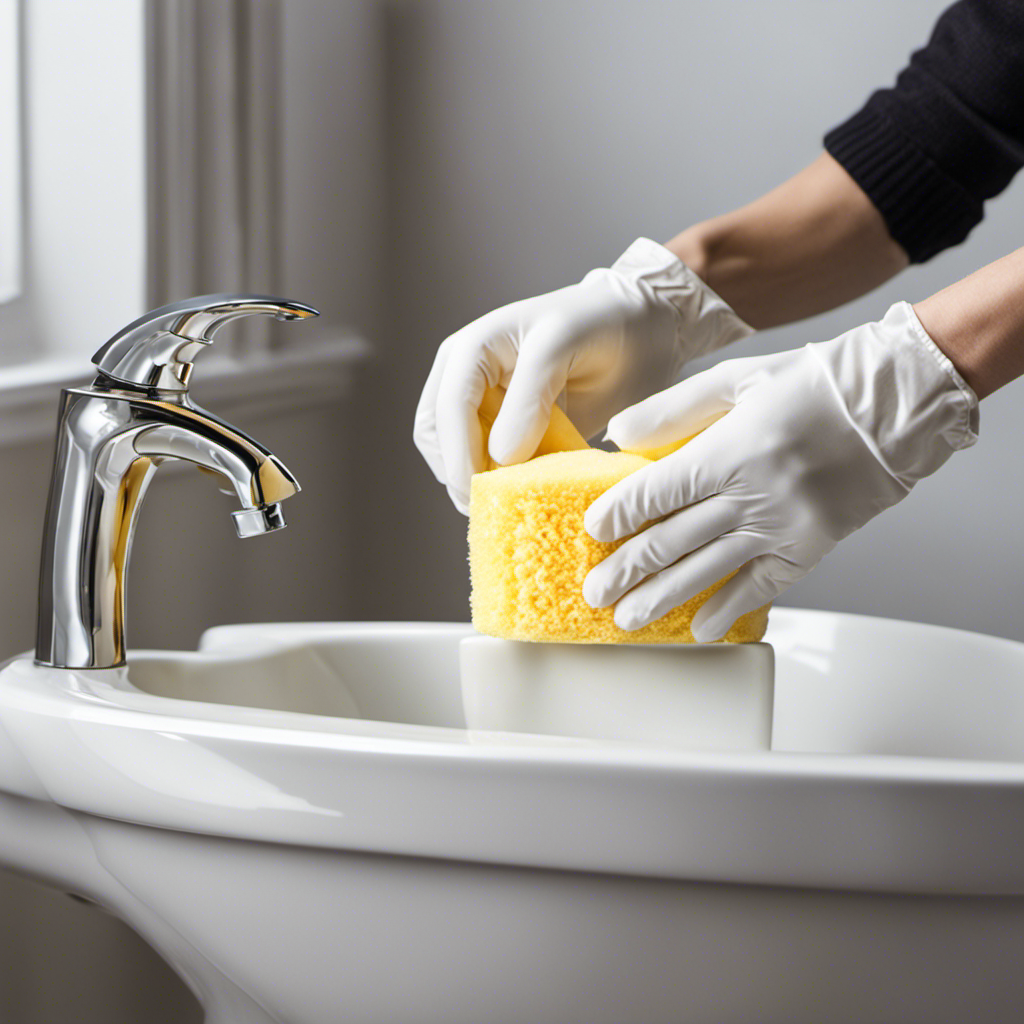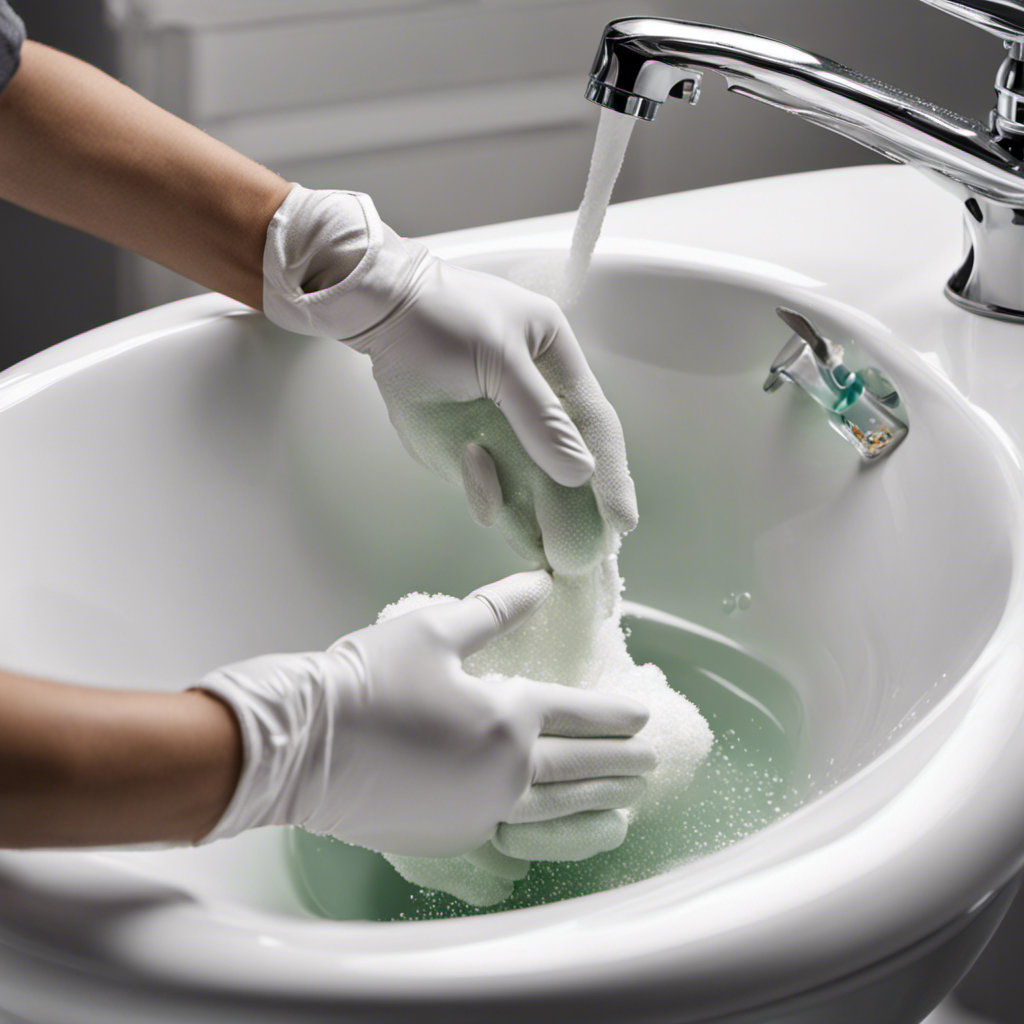FAQ - Advanced Bathroom Queries
Why Does My Poop Fall Apart in the Toilet
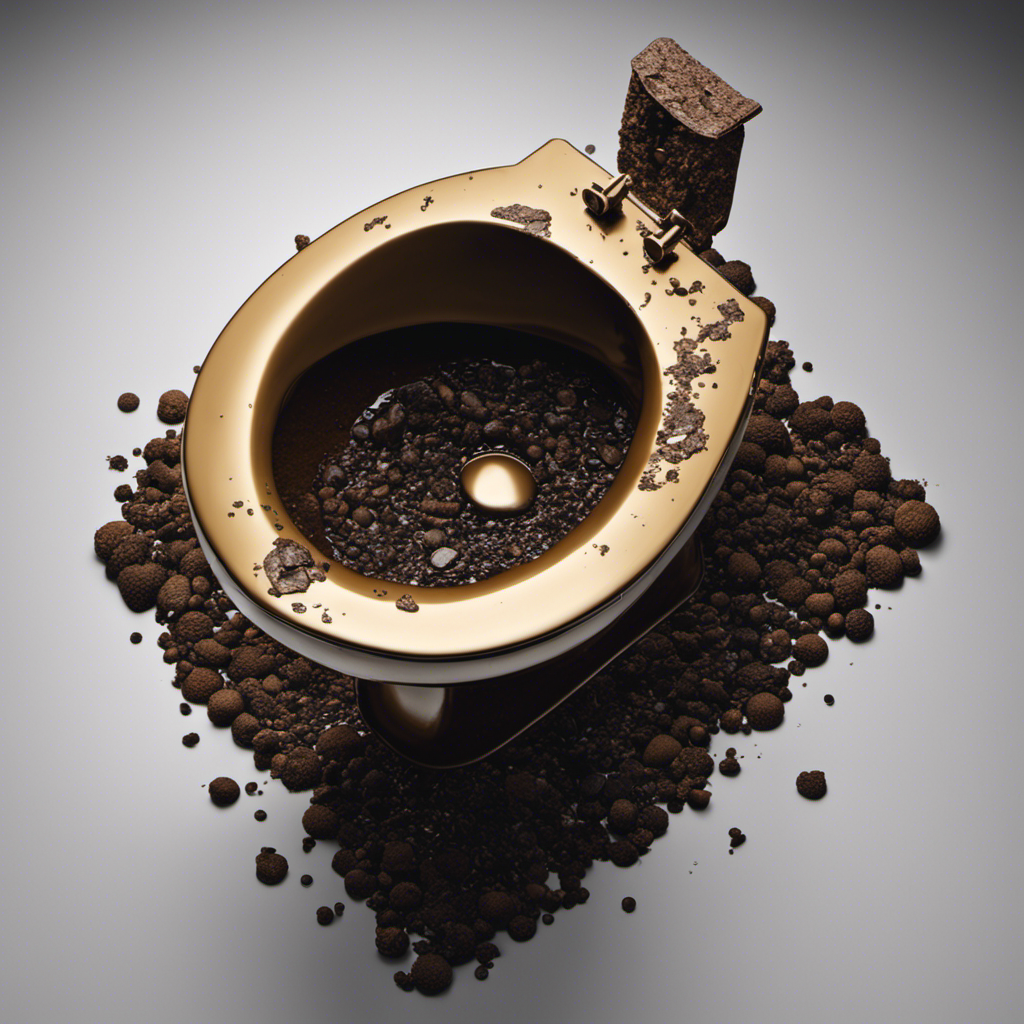
Why does my poop fall apart in the toilet?
Have you ever wondered about the science behind the consistency of your stool? In this article, I will delve into the factors that affect poop texture, including how our diet plays a role in the structure of our waste.
Understanding the process of digestion and poop formation can help shed light on why sometimes our stool may be loose. I will also provide tips for improving poop solidity and when it might be necessary to seek medical help for abnormal poop texture.
Key Takeaways
- Poop consistency is affected by the amount of water present in the large intestine.
- A balanced diet rich in fiber promotes the growth of beneficial gut bacteria, which can affect poop texture.
- Proper hydration is crucial for maintaining adequate water content in the stool.
- Digestive disorders and certain medications can disrupt normal bowel movements and affect poop texture.
The Science Behind Poop Consistency
The science behind poop consistency can explain why it falls apart in the toilet.
Poop formation is a complex process influenced by various factors. The consistency of our feces is primarily determined by the amount of water present. A well-hydrated body produces softer stools, while dehydration leads to harder, drier ones.
The digestive system also plays a role in poop consistency. The small intestine absorbs nutrients, leaving waste material to pass into the large intestine. Here, water is reabsorbed, further affecting the consistency. Additionally, the presence of fiber in our diet can contribute to more formed stools.
When we pass stool, the pressure exerted by the rectum can cause it to break apart, especially if it is already loose or not well-formed.
Understanding the science behind poop consistency can help us maintain healthy bowel movements.
Factors Affecting Poop Texture
When it comes to the texture of your poop, there are several factors that can play a role.
Diet and hydration are key influencers, as what you eat and drink can impact the consistency of your stool.
Digestive disorders, such as irritable bowel syndrome or inflammatory bowel disease, can also affect poop texture.
Additionally, certain medications and supplements can have an impact on how your stool looks and feels.
Diet and Hydration
Eating a balanced diet and staying hydrated can help regulate the consistency of your poop. The presence of gut bacteria and proper water intake play crucial roles in maintaining healthy poop consistency.
Gut bacteria, also known as microbiota, are essential for digestion and nutrient absorption. These bacteria break down the food we eat, producing substances that affect the texture of our poop. A balanced diet rich in fiber promotes the growth of beneficial gut bacteria, which can help regulate bowel movements and prevent stool from falling apart.
Additionally, staying hydrated is vital for maintaining adequate water content in the stool. Drinking enough water helps soften the stool, making it easier to pass and preventing it from breaking apart in the toilet.
Digestive Disorders
Make sure you’re aware of the symptoms and seek medical advice if you experience digestive disorders. Digestive disorders can disrupt the normal functioning of your digestive system, leading to uncomfortable symptoms such as constipation and diarrhea.
Here are three common digestive disorders:
-
Irritable bowel syndrome (IBS): This disorder causes abdominal pain, bloating, and changes in bowel habits. It can be triggered by certain foods, stress, or hormonal changes.
-
Gastroesophageal reflux disease (GERD): This condition occurs when stomach acid flows back into the esophagus, causing heartburn and discomfort.
-
Crohn’s disease: This is an inflammatory bowel disease that affects the lining of the digestive tract, leading to abdominal pain, diarrhea, and weight loss.
If you’re experiencing any of these symptoms, it’s important to consult a healthcare professional for proper diagnosis and treatment.
Transitioning into the next section, medications and supplements can play a role in managing these digestive disorders.
Medications and Supplements
If you’re experiencing symptoms of digestive disorders, it’s important to discuss the use of medications and supplements with your healthcare professional. While there are natural remedies available, it’s crucial to understand the potential side effects of these treatments.
Certain medications, such as laxatives, can help relieve constipation by stimulating bowel movements. However, they may also cause diarrhea and abdominal cramping. On the other hand, fiber supplements can help regulate bowel movements and improve stool consistency, but they can also lead to bloating and gas.
It’s important to find the right balance and consult with your healthcare professional before starting any new medication or supplement.
Now, let’s explore how diet impacts poop structure and what you can do to maintain healthy digestion.
How Diet Impacts Poop Structure
When considering the impact of diet on poop structure, three key points come to mind:
-
Fiber and cohesion: Fiber plays a crucial role in maintaining the cohesion of stool by adding bulk and promoting smooth passage through the digestive system.
-
Hydration and stool consistency: Proper hydration levels are essential for maintaining optimal stool consistency. Adequate water intake helps prevent dry and hard stools.
-
Gut health and digestion: A healthy gut promotes efficient digestion, ensuring that nutrients are properly absorbed and waste is effectively eliminated. This results in well-formed and regular bowel movements.
Fiber and Cohesion
To improve the cohesion of your poop in the toilet, try increasing your fiber intake. Fiber is an essential nutrient that offers numerous benefits for digestive health. Here’s why it can make a difference:
-
Increased bulk: Fiber adds bulk to your stool, making it easier to pass and less likely to break apart in the toilet.
-
Improved water absorption: Fiber absorbs water, which helps to soften your stool and promote better bowel movements.
-
Enhanced digestive motility: Fiber stimulates the muscles in your digestive tract, promoting regularity and preventing constipation.
Hydration and Stool Consistency
Drinking enough water throughout the day helps keep your stool soft and easier to pass. Dehydration can lead to constipation, as it reduces the amount of water available for your body to use in the digestive process.
When you don’t drink enough water, your body tries to conserve it by extracting more water from your stools, resulting in dry and hard stools that are difficult to pass.
In addition to hydration, the role of gut bacteria is also important in maintaining healthy stool consistency. These bacteria help break down food and produce short-chain fatty acids that contribute to the softness of your stool.
Therefore, staying hydrated and promoting a diverse and balanced gut microbiota can help prevent constipation and ensure that your stool stays in a healthy and cohesive form.
Gut Health and Digestion
Maintaining a healthy gut microbiota is key for promoting proper digestion and overall gut health. The gut microbiome, which consists of trillions of microorganisms, plays a crucial role in breaking down food, absorbing nutrients, and regulating bowel movements.
When the balance of these microorganisms is disrupted, it can lead to digestive issues such as constipation. To maintain a healthy gut microbiome and alleviate constipation, consider the following remedies:
-
Increase fiber intake: Consuming a diet rich in fruits, vegetables, whole grains, and legumes can help promote regular bowel movements and prevent constipation.
-
Stay hydrated: Drinking an adequate amount of water throughout the day can soften stools and ease their passage through the digestive system.
-
Probiotics: Taking probiotic supplements or consuming foods like yogurt or sauerkraut can help replenish beneficial bacteria in the gut, promoting a healthy gut microbiome and improving digestion.
Understanding Digestion and Poop Formation
Understanding how digestion works can help explain why your poop may fall apart in the toilet.
The digestive system plays a crucial role in poop formation. It starts with the mouth, where food is broken down into smaller particles through chewing and mixed with saliva.
Then, it travels down the esophagus into the stomach, where it is further broken down by stomach acid and digestive enzymes.
From there, it enters the small intestine, where nutrients are absorbed into the bloodstream, leaving behind waste material.
This waste material, or poop, then moves into the large intestine, where water is absorbed, making it more solid.
Finally, the poop is stored in the rectum until it is eliminated through the anus.
If the digestion process is disrupted or if there is inadequate water absorption in the large intestine, the poop can become loose and fall apart in the toilet.
Health Conditions That Can Cause Loose Stools
If you have certain health conditions, such as irritable bowel syndrome or celiac disease, you may experience loose stools. Loose stools, also known as diarrhea, can be caused by various factors, including infection, medications, and food intolerances.
-
Infection: Bacterial, viral, or parasitic infections can lead to loose stools. These infections can be contracted through contaminated food or water.
-
Medications: Certain medications, such as antibiotics, can disrupt the balance of bacteria in the gut, leading to loose stools.
-
Food intolerances: Some individuals may have difficulty digesting certain foods, such as lactose or gluten, which can result in loose stools.
Treatment options for loose stools depend on the underlying cause. It is important to stay hydrated and replenish electrolytes lost through diarrhea. Over-the-counter medications, such as anti-diarrheals, can provide temporary relief. However, it is crucial to identify and address the root cause of the loose stools for long-term management.
Consulting with a healthcare professional is recommended for proper diagnosis and treatment.
Tips for Improving Poop Solidity
One way to improve the solidity of your stool is by increasing your fiber intake. Fiber plays a crucial role in improving bowel movements and preventing constipation.
When you consume enough fiber, it adds bulk to your stool, making it easier to pass and less likely to fall apart in the toilet. This is because fiber absorbs water and adds structure to the stool, promoting regularity and preventing excessive softness.
To increase your fiber intake, you can incorporate foods such as fruits, vegetables, whole grains, and legumes into your diet. Additionally, drinking plenty of water is important to help the fiber move through your digestive system effectively.
When to Seek Medical Help for Abnormal Poop Texture
After trying various tips to improve my poop solidity, it’s important to know when to consult a doctor if I notice abnormal poop texture. Here are some signs to watch out for:
-
Persistent Loose Stools: If my poop consistently has a watery or loose consistency for more than a few days, it could indicate an underlying health issue.
-
Excessive Hard Stools: On the other hand, if my poop is consistently hard and difficult to pass, it may be a sign of constipation or another digestive problem.
-
Unusual Colors or Odors: If my poop is consistently black, red, pale, or has a foul odor, it could indicate bleeding in the gastrointestinal tract or an infection.
If I experience any of these signs, it’s crucial to consult a doctor for a proper evaluation and diagnosis. They can provide necessary guidance and help identify any underlying conditions that may be causing the abnormal poop texture.
Frequently Asked Questions
How Often Should I Be Having a Bowel Movement?
I should be having a bowel movement regularly to maintain a healthy digestive system. Dietary changes, such as increasing fiber intake, can help regulate bowel movements and prevent poop from falling apart in the toilet.
Can Stress or Anxiety Affect the Consistency of My Poop?
Stress and anxiety can impact the consistency of my poop due to the intricate connection between the gut and the brain. Effective stress management techniques, such as relaxation exercises, can help regulate bowel movements.
Are There Any Medications That Can Cause Loose Stools?
Yes, certain medications can cause loose stools. They can disrupt the normal functioning of the digestive system, leading to diarrhea. It is important to consult a healthcare professional for advice on diarrhea prevention while taking these medications.
What Can I Do to Prevent My Poop From Falling Apart in the Toilet?
To prevent my poop from falling apart in the toilet, I can improve digestion and make dietary changes. By incorporating more fiber and staying hydrated, my stools will become more solid and easier to pass.
Can Dehydration Affect the Solidity of My Poop?
Dehydration can indeed affect the solidity of my stool. When I am dehydrated, my body absorbs more water from my stool, making it harder and more difficult to pass.
Conclusion
In conclusion, understanding the science behind poop consistency is essential for maintaining a healthy digestive system. Factors such as diet, digestion, and certain health conditions can all contribute to the texture of our poop.
By making small changes to our diet and lifestyle, we can improve the solidity of our poop. However, if you notice any abnormal changes in your poop texture, it is important to seek medical help.
Remember, just like a well-constructed puzzle, having well-formed poop is like fitting all the pieces together perfectly for optimal digestive health.
With an impeccable eye for detail and a passion for bathroom-related, Ava leads our editorial team gracefully and precisely.
Under her guidance, Best Modern Toilet has flourished as the go-to resource for modern bathroom enthusiasts. In her free time, you might find Ava exploring antique shops and looking for vintage bathroom fixtures to add to her collection.
FAQ - Advanced Bathroom Queries
Why Should We Not Dispose of Medicine by Burning Them

We have all been guilty of it at some point – hastily getting rid of expired or unused medicine by burning them. But let me tell you, this seemingly harmless act has significant consequences.
Translated in English (US): We have all been guilty of it at some point – hastily disposing of expired or unused medicine by burning them. But let me tell you, this seemingly harmless act has far-reaching consequences.
The environmental impact alone is staggering. From air pollution and water contamination to soil degradation and potential health risks, the repercussions are undeniable.
In this article, we will delve into the meticulous research behind why we should never again resort to this seemingly convenient method of medicine disposal.
Key Takeaways
- Burning medicine releases harmful chemicals into the air, soil, and water, causing environmental contamination.
- Toxic substances, such as heavy metals and organic compounds, can persist in the environment, posing threats to ecosystems and human health.
- Burning medicine contributes to air pollution, which can lead to respiratory problems and even lung cancer.
- Water contamination is another consequence of burning medicine, affecting both surface and groundwater and harming aquatic life.
Environmental Impact
One of the reasons we shouldn’t dispose of medicine by burning them is because it can have a detrimental environmental impact. Proper waste management of unused or expired medications is crucial for protecting our environment.

When medications are burned, harmful chemicals can be released into the air, soil, and water, posing serious threats to ecosystems and human health. These chemicals can include toxic substances, such as heavy metals and organic compounds, which can contaminate the environment and persist for long periods of time.
To mitigate this environmental impact, it’s important to explore sustainable alternatives for medication disposal. Safe and environmentally-friendly options include participating in drug take-back programs, returning medications to pharmacies, or using designated collection sites. By adopting these sustainable practices, we can minimize the negative impact on our environment and promote a healthier and cleaner planet.
This issue of improper medication disposal is closely related to the problem of air pollution, which will be discussed in the next section.
Air Pollution
Burning medicine for disposal contributes to air pollution by releasing harmful chemicals into the atmosphere. This form of disposal can have serious consequences for both indoor and outdoor air quality. When medicines are burned, they release toxic substances such as dioxins, furans, and heavy metals. These pollutants can linger in the air for extended periods, posing a risk to human health.

Indoor exposure to these pollutants can lead to respiratory problems, including asthma, bronchitis, and even lung cancer. It’s crucial to recognize the potential dangers associated with burning medicine and to seek alternative methods of disposal.
Water Contamination
Continuing our discussion on the negative impacts of burning medicine for disposal, we must now address the issue of water contamination. Improper disposal of medicine through burning can have detrimental effects on water sources, contributing to water scarcity and posing a threat to aquatic life. When medications are burned, their chemical compounds are released into the air, and eventually find their way into water bodies through rainfall or run-off. This can contaminate both surface and groundwater, affecting the delicate balance of aquatic ecosystems. To illustrate the potential consequences, consider the following table:
| Impacts of Water Contamination | |
|---|---|
| Water Scarcity | Decreased availability of clean water for human consumption and agriculture, leading to economic and health implications. |
| Aquatic Life | Disruption of ecosystems, harm to fish and other aquatic organisms due to exposure to toxic substances, and potential loss of biodiversity. |
Understanding the detrimental effects of water contamination caused by burning medicine, it becomes evident that alternative disposal methods are necessary to prevent further harm to our water resources. This leads us to the next section, where we will explore the issue of soil degradation.
Soil Degradation
As we delve into the issue of soil degradation, it’s crucial to recognize the direct connection between improper medicine disposal and the negative impact it has on the health and fertility of our soil.

Soil degradation refers to the deterioration of soil quality, resulting in reduced agricultural productivity and ecosystem health.
Improper disposal of medicine, such as burning them, can contribute to soil degradation through the release of harmful chemicals and toxins. These substances can disrupt the delicate balance of soil microorganisms and nutrient cycles, leading to reduced soil fertility.
Additionally, the loss of vegetation cover and erosion control caused by soil degradation further exacerbate the problem.
To ensure sustainable agriculture and protect our soil, it’s imperative that we adopt proper medicine disposal methods that minimize the negative impact on soil health and promote a more resilient and productive ecosystem.

Health Risks
Using any form of burning to dispose of medicine poses significant health risks to both individuals and communities. It’s crucial to understand these risks and promote proper disposal methods to protect our well-being.
Here are four reasons why burning medicine can have detrimental effects on our health:
- Toxic fumes: When medications burn, they release harmful chemicals into the air, including dioxins, furans, and volatile organic compounds (VOCs). These toxic fumes can cause respiratory problems, eye irritation, and even contribute to the development of diseases like cancer.
- Air pollution: Burning medicine contributes to air pollution, which affects not only the immediate surroundings but also the wider environment. This pollution can exacerbate respiratory conditions, harm wildlife, and degrade air quality, leading to various health issues for both humans and animals.
- Long-term effects: Exposure to the toxic substances released during burning can have long-term health effects. Prolonged inhalation of these chemicals may lead to chronic respiratory problems, neurological disorders, and reproductive issues.
- Community impact: Improper disposal practices, such as burning medicine, can negatively impact the entire community. It can contaminate water sources, harm ecosystems, and compromise the health of vulnerable populations, such as children and the elderly.
To prevent these health risks, it’s essential to educate the public about proper disposal methods, such as participating in take-back programs or using designated medication drop-off sites. By adopting these responsible practices, we can safeguard our health and protect the environment for future generations.
Frequently Asked Questions
How Can I Properly Dispose of Expired or Unused Medication?
Proper disposal methods for expired or unused medication include eco-friendly ways. We should never burn medicine as it can release harmful chemicals into the air. Instead, consider returning them to a pharmacy or using a drug take-back program.

Are There Any Alternative Methods of Medication Disposal That Are More Environmentally Friendly?
Eco-friendly options for medication disposal include participating in community medication take back programs. Burning medicine is harmful to the environment and should be avoided due to the potential release of toxins.
Can Burning Medicine Release Toxic Chemicals Into the Air?
Burning medicine can release toxic chemicals into the air, contributing to air pollution. This is why it is important to find alternative methods of medication disposal that are more environmentally friendly.
Is It Safe to Flush Medication Down the Toilet?
Toilet flushing medication may seem convenient, but is it safe for the environment? The impact of medication disposal on water sources is concerning. Let’s explore alternative methods to protect our ecosystems.
Can Improper Disposal of Medication Lead to the Development of Antibiotic-Resistant Bacteria?
Improper medication disposal can contaminate water sources, potentially leading to the development of antibiotic-resistant bacteria. Pharmaceutical companies play a crucial role in promoting proper disposal methods to mitigate this impact on public health.

Conclusion
In conclusion, it’s imperative that we refrain from disposing of medicine by burning them due to the detrimental environmental impact it has. Not only does it contribute to air pollution, water contamination, and soil degradation, but it also poses health risks.
Just like a single drop of ink can spread and stain an entire glass of water, burning medicine releases harmful substances that can spread and contaminate our surroundings, affecting not only the present but also the future generations.
Let’s be responsible stewards of our planet and seek proper disposal methods for unused medications.
With an impeccable eye for detail and a passion for bathroom-related, Ava leads our editorial team gracefully and precisely.
Under her guidance, Best Modern Toilet has flourished as the go-to resource for modern bathroom enthusiasts. In her free time, you might find Ava exploring antique shops and looking for vintage bathroom fixtures to add to her collection.
FAQ - Advanced Bathroom Queries
New Toilet

Introducing our new toilet, a marvel of efficient and eco-friendly design, advanced technology, and sleek aesthetics. This revolutionary bathroom fixture redefines comfort and convenience.
Prepare to have your expectations surpassed as we introduce you to a toilet that not only enhances hygiene and cleanliness but also offers a superior experience. Embrace the future of bathroom technology and indulge in the mastery of this state-of-the-art creation.
Welcome to a world where even the most mundane tasks are elevated to new heights.
Key Takeaways
- The ‘New Toilet’ is designed to be efficient and eco-friendly, incorporating water-saving features and sustainable materials.
- It offers advanced technology for a superior experience, including adjustable water pressure, temperature control, and personalized settings.
- The ‘New Toilet’ prioritizes comfort and convenience, with ergonomic design, user-friendly controls, and self-cleaning functions.
- It boasts sleek and modern aesthetics, with a space-saving design and thoughtful finishing touches for a visually pleasing look.
Efficient and Eco-Friendly Design
To ensure an efficient and eco-friendly design, we focused on incorporating water-saving features and reducing carbon emissions in our new toilet. Our toilet is equipped with innovative water-saving features that allow for a significant reduction in water consumption without compromising on performance. The dual-flush system, for example, offers the option to use a lower volume of water for liquid waste, further conserving water.

Additionally, we made a conscious effort to use sustainable materials in the construction of our toilet. By utilizing recycled and eco-friendly materials, we minimize the environmental impact associated with the production and disposal of our product. These water-saving features and sustainable materials work together to create a toilet that isn’t only efficient but also environmentally conscious.
Transitioning into the subsequent section about ‘advanced technology for a superior experience’, we’ve also integrated advanced technological features to enhance the overall user experience.
Advanced Technology for a Superior Experience
We have incorporated cutting-edge technology to enhance the overall user experience of our new toilet. Here are four smart features that truly set our product apart:
- Adjustable Water Pressure: With our toilet, users have the ability to customize the water pressure to their liking. This ensures a comfortable and refreshing cleanse every time.
- Temperature Control: Our advanced technology allows users to adjust the temperature of the water for both washing and bidet functions. This customizable feature ensures a pleasant experience, especially during colder seasons.
- Self-Cleaning Nozzle: The built-in self-cleaning nozzle ensures optimal hygiene by automatically cleaning itself before and after each use. This eliminates the need for manual cleaning and helps maintain cleanliness and freshness.
- Personalized Settings: Our toilet offers user customization through personalized settings. Users can save their preferred water pressure, temperature, and other settings, making their experience convenient and tailored to their preferences.
With these smart features and user customization options, our new toilet provides a superior experience that guarantees comfort, cleanliness, and convenience.

Comfort and Convenience Redefined
Our new toilet revolutionizes comfort and convenience for users. With its ergonomic design and user-friendly features, it offers an unparalleled experience in bathroom technology.
The toilet’s ergonomic design ensures optimal comfort during use, with a contoured seat that supports proper posture and reduces strain. It also features user-friendly controls that are intuitively placed for easy access, allowing for effortless operation.
Additionally, the toilet incorporates advanced technologies such as a self-cleaning function and a motion sensor for hands-free flushing, further enhancing convenience and hygiene. These innovative features provide users with a seamless and comfortable experience every time they use the toilet.
As we delve into the next section about sleek and modern aesthetics, we’ll see how our new toilet combines both form and function to elevate the overall bathroom experience.

Sleek and Modern Aesthetics
With its sleek and modern aesthetics, our new toilet seamlessly blends style and functionality. Here’s how it achieves its refined look while maximizing space efficiency:
- Innovative Materials: Our toilet is crafted from cutting-edge materials that not only enhance its durability but also contribute to its sleek appearance. The use of innovative materials ensures a clean and polished look that complements any bathroom decor.
- Space Saving Design: We understand the importance of optimizing space in modern bathrooms. That’s why our new toilet features a space-saving design that takes up minimal floor space without compromising on comfort. Its compact dimensions make it an ideal choice for smaller bathrooms or powder rooms.
- Streamlined Silhouette: The sleek lines and slim profile of our toilet create a streamlined silhouette that exudes contemporary elegance. Its minimalist design adds a touch of sophistication to any bathroom, making it a focal point and enhancing the overall aesthetic.
- Thoughtful Finishing Touches: From the sleek chrome accents to the smooth and seamless surfaces, every detail of our toilet has been meticulously designed to create a visually pleasing and cohesive look. The attention to detail ensures that our toilet not only looks great but also functions flawlessly.
Enhanced Hygiene and Cleanliness
To ensure optimal hygiene and cleanliness, our new toilet incorporates advanced sanitation features. These features provide numerous health benefits and significantly reduce the risk of bacterial contamination.
The toilet is equipped with a self-cleaning system that automatically cleans the bowl after each use, eliminating the need for manual scrubbing. This not only saves time and effort but also ensures a germ-free environment.
Furthermore, the toilet is designed with antimicrobial materials that prevent the growth and spread of bacteria. The seat is coated with a special antibacterial surface, providing an additional layer of protection against harmful microorganisms.

The advanced flushing mechanism utilizes high-pressure water jets to thoroughly rinse the bowl, leaving it spotlessly clean.
With our new toilet, you can enjoy the peace of mind knowing that your bathroom remains hygienic and free from harmful bacteria.
Frequently Asked Questions
What Are the Dimensions of the ‘New Toilet’ and Will It Fit in My Small Bathroom?
Toilet dimensions and bathroom space are important considerations when selecting a new toilet. We need to determine if the new toilet will fit in our small bathroom before making a purchase.
How Does the ‘New Toilet’ Contribute to Water Conservation and What Is Its Water Usage Rate?
The new toilet’s design incorporates water-saving technology, significantly reducing water usage. Its water usage rate is carefully optimized to conserve water while still ensuring effective flushing.

Can the ‘New Toilet’ Be Easily Installed in an Existing Bathroom or Does It Require Professional Assistance?
Installing the ‘new toilet’ can be a breeze or a challenge, depending on your DIY skills and experience. While some may find it straightforward, others might prefer professional assistance for a seamless installation process.
Is the ‘New Toilet’ Equipped With Any Additional Features Such as Heated Seats or Automatic Flushing?
Yes, the ‘new toilet’ is equipped with additional features such as heated seats and automatic flushing. These features provide enhanced comfort and convenience, making the toilet a modern and efficient choice for any bathroom.
Does the ‘New Toilet’ Come With a Warranty and What Is the Expected Lifespan of the Product?
The warranty coverage for this product ensures peace of mind, while the expected lifespan exceeds industry standards. Our team has thoroughly tested and evaluated the ‘new toilet’ to guarantee its longevity and durability.
Conclusion
In conclusion, this new toilet revolutionizes the bathroom experience with its efficient and eco-friendly design, advanced technology, and sleek aesthetics.

With enhanced hygiene and cleanliness features, it offers a superior level of comfort and convenience.
This innovative toilet is truly a game-changer, taking bathroom experiences to new heights.
Prepare to be amazed by its superior performance and indulge in the luxury it provides.
You won’t believe how you ever lived without it!

With an impeccable eye for detail and a passion for bathroom-related, Ava leads our editorial team gracefully and precisely.
Under her guidance, Best Modern Toilet has flourished as the go-to resource for modern bathroom enthusiasts. In her free time, you might find Ava exploring antique shops and looking for vintage bathroom fixtures to add to her collection.
FAQ - Advanced Bathroom Queries
Is It Ok to Flush Wipes Down the Toilet

Are you questioning the safety of flushing wipes down the toilet? We have the information you need.
In this article, we’ll delve into the environmental impact of flushing wipes, the risks it poses to plumbing and sewer systems, and the effects on water treatment facilities.
We’ll also explore alternative methods of disposal and provide you with the proper ways to ensure a clean and efficient system.
Get ready to master the art of responsible waste management.

Key Takeaways
- Flushing wipes can have a detrimental environmental impact, as they are not biodegradable and can end up in waterways, contaminating rivers, lakes, and oceans.
- Wipes can clog sewer systems and contribute to the formation of fatbergs, leading to sewage backups in homes, businesses, and neighborhoods.
- Flushing wipes can also cause problems in water treatment facilities, reducing their efficiency and leading to untreated wastewater release and increased water pollution.
- To prevent these issues, it is important to find alternative disposal methods for wipes, such as using biodegradable wipes, reusable cloth wipes, or toilet paper, and properly disposing of wipes in the trash, recycling, or composting them.
Environmental Impact of Flushing Wipes
Frequently, we flush wipes down the toilet without considering the detrimental environmental impact they have. Wipes pollution is a growing concern as these products aren’t biodegradable and can end up in our waterways, causing significant harm to marine life.
When wipes are flushed, they can clog sewer systems and contribute to the formation of fatbergs, which are large masses of solid waste that can block sewage pipes. These blockages can lead to sewage overflow, contaminating rivers, lakes, and oceans with harmful bacteria and chemicals.
Marine life is particularly vulnerable to the impact of wipes pollution. Marine animals can mistake wipes for food, leading to internal injuries and even death. Additionally, the chemicals present in wipes can leach into the water, causing further harm to aquatic ecosystems.
It’s essential to understand the consequences of flushing wipes and explore more sustainable alternatives to protect our environment and marine life.
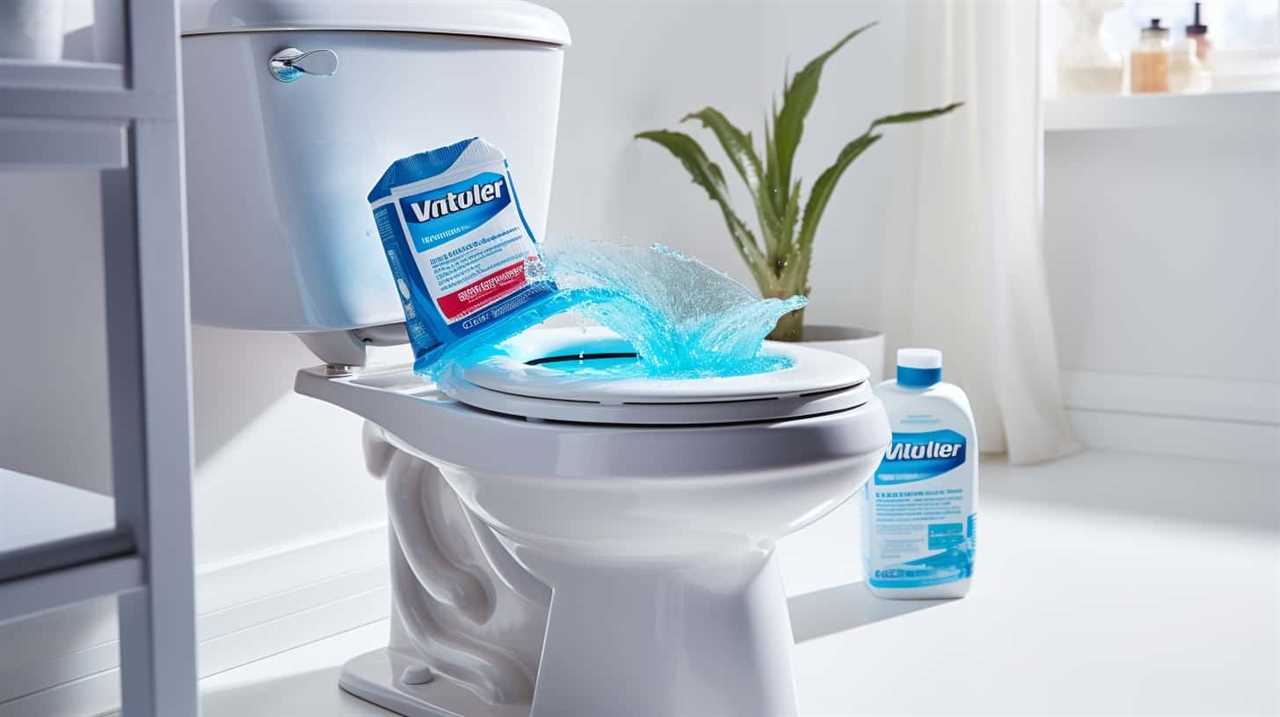
Risks to Plumbing and Sewer Systems
As we continue the discussion on the environmental impact of flushing wipes, it’s important to address the risks that these products pose to plumbing and sewer systems. Flushing wipes down the toilet can lead to serious risks to the infrastructure and result in costly repairs. Here are three specific risks associated with this practice:
- Clogging: Wipes, especially those labeled as ‘flushable,’ don’t break down easily like toilet paper. They can accumulate in pipes and sewer lines, causing blockages that can disrupt the flow of wastewater.
- Sewer backups: When wipes clog the sewer system, it can lead to sewage backups in homes, businesses, and even entire neighborhoods. This not only poses health risks but also requires expensive repairs to fix the damage.
- Overloading treatment plants: Wipes that make their way to water treatment facilities can overload the system’s capacity to filter out solids, leading to malfunctions and increased operational costs.
Considering these risks to infrastructure and the potential cost of repairs, it’s crucial to find alternative disposal methods for wipes.
Now, let’s explore the effects of flushing wipes on water treatment facilities.
Effects on Water Treatment Facilities
Now, let’s delve into how flushing wipes down the toilet affects water treatment facilities. When wipes are flushed, they can cause significant problems for these facilities.

One of the main concerns is water pollution. Wipes don’t break down easily like toilet paper, so they can clog pipes and pumps in the treatment process. This can lead to backups and overflows, resulting in untreated wastewater being released into the environment.
Additionally, wipes can accumulate in screens and filters, reducing the efficiency of the treatment process. This not only increases the cost of operations but also increases the risk of pollutants entering our waterways.
Therefore, it’s crucial to dispose of wipes properly in the trash to avoid clogging issues and water pollution in our treatment facilities.
Alternatives to Flushing Wipes
We often find ourselves wondering about alternative methods for disposing of wipes instead of flushing them down the toilet. Fortunately, there are several eco-friendly options and reusable alternatives available that can help us reduce waste and protect the environment.
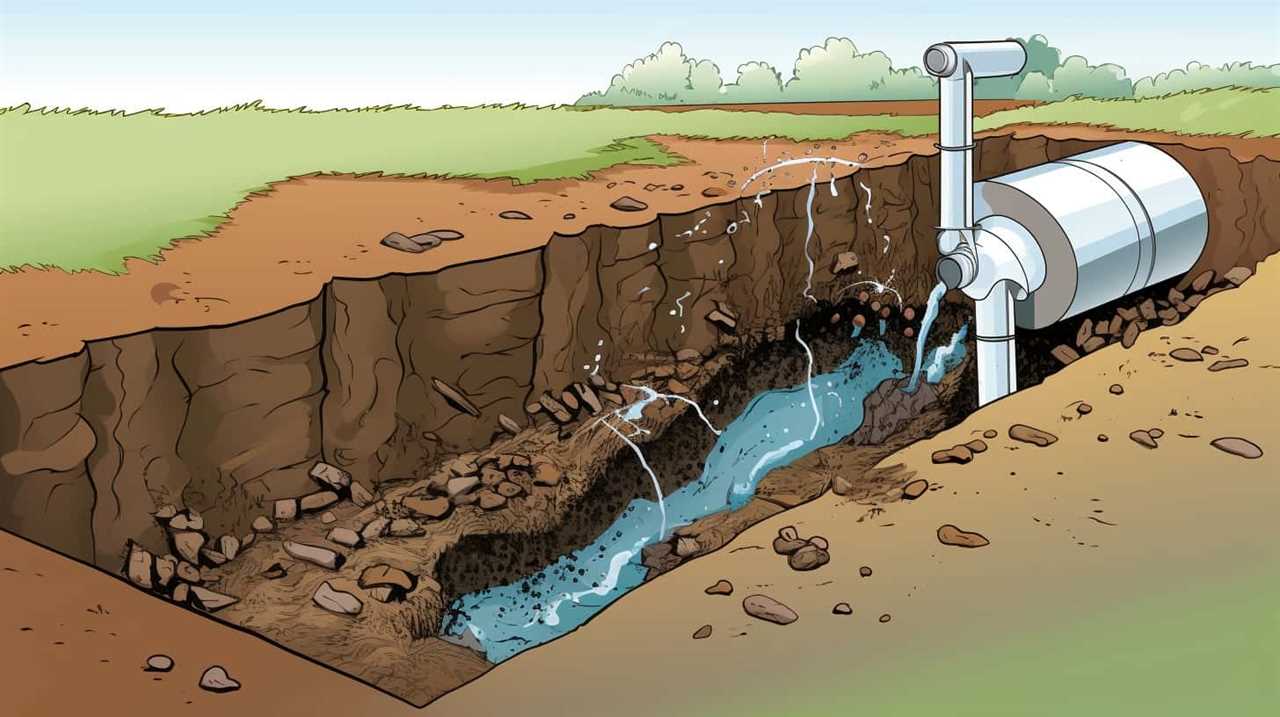
Here are three options to consider:
- Use biodegradable wipes: Look for wipes that are specifically labeled as biodegradable. These wipes are designed to break down naturally over time, reducing their impact on the environment.
- Switch to reusable cloth wipes: Consider using reusable cloth wipes instead of disposable ones. These can be made from soft, absorbent materials like cotton or bamboo and can be washed and reused multiple times, reducing waste and saving money in the long run.
- Opt for toilet paper: In many cases, wipes are used as an alternative to toilet paper. However, using toilet paper is a more sustainable option as it’s specifically designed to break down quickly in water and is less likely to cause blockages in sewage systems.
Proper Disposal Methods for Wipes
To properly dispose of wipes, it is important to follow specific guidelines that ensure minimal environmental impact and prevent potential blockages in sewage systems. While flushing wipes down the toilet is not recommended, there are alternative methods that can be used for their proper disposal. One option is to recycle wipes that are made from recyclable materials. Many communities have recycling programs in place that accept certain types of wipes. Another option is composting wipes that are biodegradable. These wipes can be added to a compost pile or bin, where they will break down naturally over time. By recycling or composting wipes, we can reduce the amount of waste that ends up in landfills and minimize the negative impact on the environment.
| Disposal Method | Environmental Impact |
|---|---|
| Recycling | Minimal |
| Composting | Minimal |
Frequently Asked Questions
Are All Types of Wipes Equally Harmful to the Environment When Flushed Down the Toilet?
Different types of wipes have varying degrees of harm to the environment when flushed down the toilet. Flushing wipes can lead to clogged pipes, sewage backups, and water pollution, posing serious consequences for our ecosystems.
Can Flushing Wipes Down the Toilet Cause Blockages in Household Plumbing?
Flushing wipes down the toilet can lead to potential plumbing issues. They can cause blockages and clog pipes, resulting in costly repairs. Additionally, the environmental impact of flushing wipes is significant, as they can contribute to sewer backups and pollution.

Do Water Treatment Facilities Have Effective Systems in Place to Remove Wipes From Wastewater?
Water treatment facilities utilize advanced technology to effectively remove wipes from wastewater. However, flushing wipes down the toilet can still have a negative environmental impact as they may clog pipes and contribute to the buildup of non-biodegradable waste.
What Are Some Alternative Methods of Disposing of Wipes That Are Safe for the Environment?
Eco friendly disposal options for wipes include throwing them in the trash or using biodegradable wipes. Proper disposal methods are crucial to protect the environment and prevent clogged pipes and sewage backups.
Can Wipes Be Composted or Recycled?
Composting wipes can have numerous benefits, such as enriching the soil and reducing waste. However, not all wipes are compostable, so it’s important to check the packaging. Recycling options for wipes may vary depending on the materials used.
Conclusion
In conclusion, while it may be convenient to flush wipes down the toilet, it isn’t okay due to the significant environmental impact, risks to plumbing and sewer systems, and effects on water treatment facilities.

Despite claims of ‘flushable’ wipes, they can still cause clogs and damage to infrastructure.
To protect the environment and maintain proper functioning of our systems, it’s best to dispose of wipes in the trash or explore alternatives such as biodegradable options.
With an impeccable eye for detail and a passion for bathroom-related, Ava leads our editorial team gracefully and precisely.
Under her guidance, Best Modern Toilet has flourished as the go-to resource for modern bathroom enthusiasts. In her free time, you might find Ava exploring antique shops and looking for vintage bathroom fixtures to add to her collection.
-

 Bathroom Enhancements2 months ago
Bathroom Enhancements2 months agoWill Hot Bath Lower Blood Pressure
-

 FAQ - Advanced Bathroom Queries3 months ago
FAQ - Advanced Bathroom Queries3 months agoWhich Countries Use Bidets the Most
-

 Reviews1 month ago
Reviews1 month agoLDian Smart Toilet Review [2024]
-
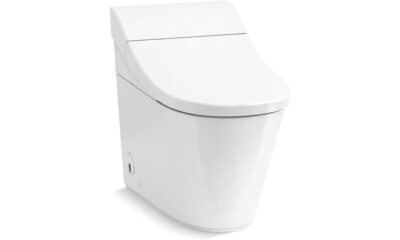
 Reviews2 months ago
Reviews2 months agoKohler Innate Smart Toilet Review [2024]
-
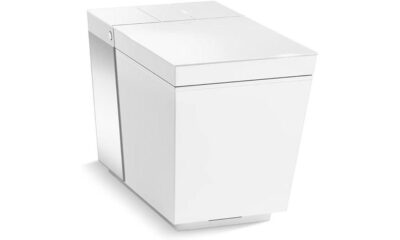
 Reviews2 months ago
Reviews2 months agoKohler NUMI 2.0 Smart Toilet Review [2024]
-
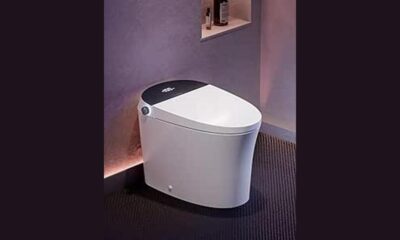
 Reviews2 months ago
Reviews2 months agoCANEST Smart Toilet Review: The Ultimate Bathroom Upgrade [2024]
-

 Toilet Types3 months ago
Toilet Types3 months agoAre Bleach Tablets Bad for Your Toilet
-

 Reviews2 months ago
Reviews2 months agoWoodbridge B0970S Smart Bidet Toilet Review [2024]
